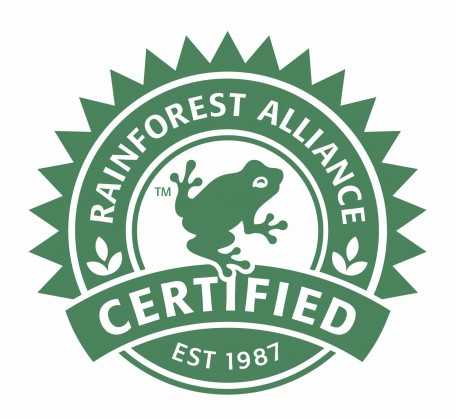NEW YORK CITY – A new study by Cenicafe, a Colombian research institute, finds that sustainable farming practices play a key role in improving the health of streams.
This benefits the local communities and wildlife that rely on them as their primary source of water. By comparing water quality on Rainforest Alliance Certified coffee farms in Colombia with non-certified farms, researchers found that the sustainable management practices adopted on certified farms significantly enhance the health of local waterways.
“The quality of water on farms was measured by looking at key indicators of stream health, such as the presence of sensitive aquatic invertebrates, erosion, streamside vegetation, and the oxygen and pH levels of the water,” explained David Hughell, research and geospatial analyst at the Rainforest Alliance.

“Results of the study found that certified farms had substantially healthier waterways than non-certified farms, enhanced by a greater abundance of vegetation along the stream banks.”
To earn the Rainforest Alliance Certified seal, farmers must meet a comprehensive set of social, environmental and economic standards that include criteria for water conservation and quality. Certified farms treat wastewater, conserve streamside habitat and restrict the use of harmful agrochemicals that can leach into local waterways, which all promote healthier streams. “Before we achieved Rainforest Alliance certification, the quality of water on our farm was very poor and it smelled terrible. We would empty our garbage and sewage directly into the stream and we sprayed toxic chemicals on our crops that would run off into the water,” explained Norbey Lasso Rocha of La Esmeralda, a Rainforest Alliance Certified coffee farm in Colombia. “Now water conditions are much improved. We treat wastewater and no longer dump our garbage into the stream.”
Source: Rainforest Alliance


















